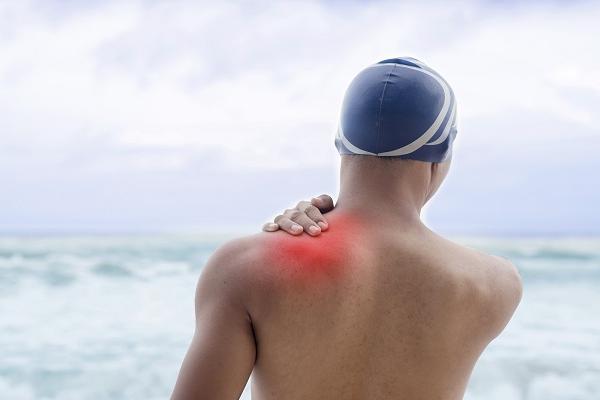Beware If Your Shoulder Or Neck Pain Lasts Longer Than Two Days After Swimming!
Especially during swimming, which is one of the most popular activities of holiday periods, the neck and shoulder joints are loaded more than normal. Orthopedic Specialist Prof. Dr. Gökhan Meriç said that experiencing pain in the neck and shoulder area while swimming or swimming strokes is a symptom that should be taken into consideration.
Swimming is a sport where the whole body is exercised and muscle activity is high. However, it is also extremely beneficial in terms of energy expenditure. According to the information given by Prof. Dr. Gökhan Meriç, Orthopedics and Traumatology Specialist at Yeditepe University Hospitals, swimming 1 km is equivalent to running 4 km. However, Yeditepe University Kozyatağı Hospital Orthopedics and Traumatology Specialist Prof. Dr. Gökhan Meriç reminded us that more load is placed on the neck and shoulder joints than normal during swimming and pointed out the problems that may arise because of this.
What Does Shoulder Pain After Swimming Indicate?
Stating that the shoulder joint is the most mobile joint of the body and that this movement is achieved thanks to the flexibility of the surrounding capsule structure, Prof. Dr. Meriç said, "However, in people with structurally looser joints, more load on this capsule structure may cause pain."
Stating that tendinitis (edema) in the shoulder muscles and impingement in the shoulder joint is the most common shoulder disorders caused by swimming, Prof. Dr. Gökhan Meriç gave the following information on the subject: "Excessive use of the shoulder and back muscles that we do not use much during the year, increased compression effect of the shoulder bone on the shoulder muscles when your arm is lifted while stroking, cartilage damage in the shoulder joint, tendonitis in the biceps muscle can be seen. Edema and inflammation of these muscles due to compression of the shoulder muscles between the shoulder bones can cause pain."
Swimmer's Shoulder Also Affects Athlete's Performance
Stating that swimmer's shoulder, which is defined as shoulder pain that occurs during periods of intense swimming, is a problem that can be observed in 40-60 percent of professional swimmers, Prof. Dr. Gökhan Meriç said, "Overuse, joints being structurally more flexible than normal, insufficient muscle strength around the shoulder and incorrect swimming technique can lead to swimmer's shoulder. The main cause of this problem, which is common in swimmers, is unbalanced development in the shoulder muscles, movement problems in the shoulder blade, and incorrect technique. This situation also negatively affects the performance of the athlete."
Take a Break from Swimming if There is Pain in the Shoulder
Underlining that if there is a pain in the shoulder after or during swimming, it is necessary to take a break from swimming, Prof. Dr. Gökhan Meriç gave the following information about what to do in this case: "During the painful period, it is necessary to apply ice to the shoulder 3-4 times a day for 10-15 minutes. In addition, using painkiller gels and tablets for 5-7 days will also be beneficial. However, if the pain in the shoulder persists for more than 10 days despite rest and treatment and prevents daily activities, a specialist should definitely be consulted."
Stating that although the treatment differs according to the underlying cause of shoulder pain, patients can benefit from physical therapy, exercise, and intra-shoulder injections, Prof. Dr. Meriç said, "In advanced cases such as muscle tears where complaints persist despite treatment, interventions with closed shoulder arthroscopy may be required."
Weakness in Neck Muscles May Cause Pain in the Neck
Prof. Dr. Gökhan Meriç reminded us that the weak muscles in the front of the neck tire faster than the strong ones and that pain in the neck is seen with the increase in swimming time and gave the following information about the conditions that can cause pain: "Excessive rotation of the neck while breathing can cause neck pain if the body and head are not in the same alignment. When breathing, neck pain or numbness and tingling in the arms may indicate a neck hernia. Especially people with weak neck muscles may experience pain radiating to the neck and back after swimming."
Do These To Protect the Neck While Swimming!
Stating that pain can be prevented by paying attention to some points to protect the neck while swimming, Yeditepe University Kozyatağı Hospital Orthopedics and Traumatology specialist Prof. Dr. Meriç said, "First of all, it is necessary to ensure that the head is in line with the body while swimming. At the same time, rotate the body towards the respiratory side to avoid turning the neck too much and over-extending the arms. It is necessary to exhale equally on both sides to avoid excessive stress on one side of the neck. Try to use an appropriate swimming technique to strengthen the abdominal muscles and central region muscles along with the neck muscles."
"If the Pain Persists, a Specialist Should Be Consulted"
Prof. Dr. Gökhan Meriç pointed out that in case of pain in the neck area during or after swimming, first of all, swimming should be suspended and gave the following warnings: "Painkillers can be used to relieve pain. In addition, a hot water bag and a hot shower relax the muscles in this area and increase blood circulation in the neck. Neck pain accompanied by numbness and tingling in the hands and loss of strength may be related to neck hernia and a specialist should be consulted. In case of neck pain that does not go away, a specialist should be consulted again."
”




